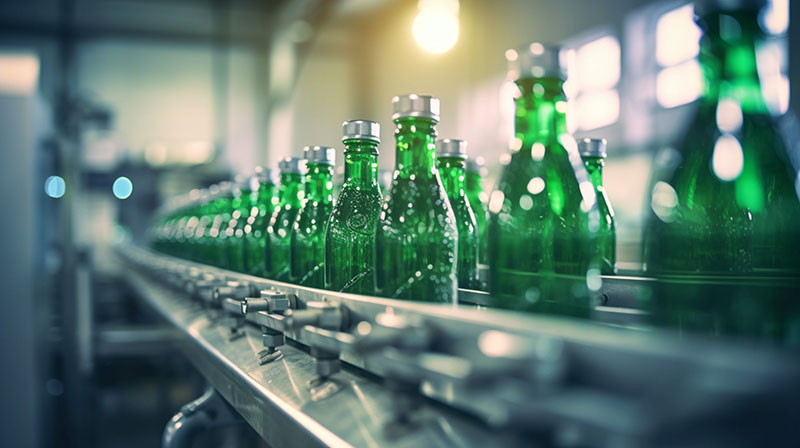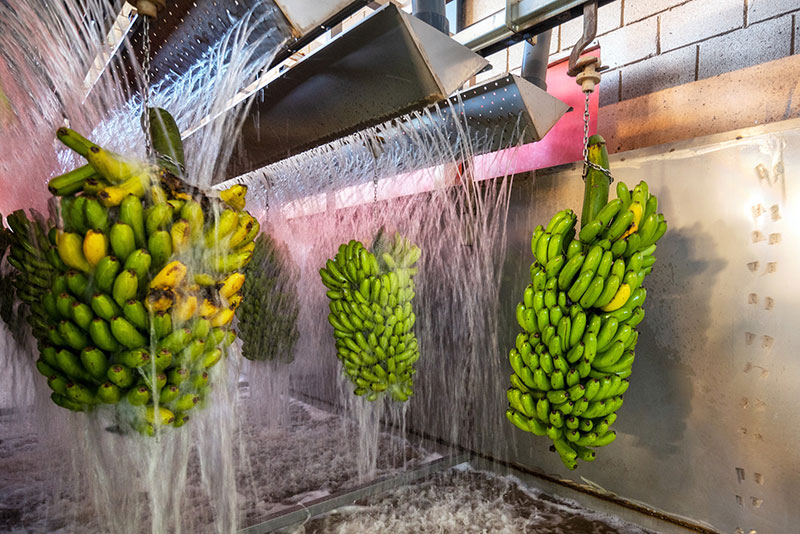The food and beverage industry uses a vast amount of water during production: as an ingredient in products, for cleaning and sanitizing work surfaces and equipment, and for boiling and cooling. This generates a continuous stream of wastewater, much of which can be recycled for reuse instead of being discharged into the environment.
Companies seek ways to reduce their impact on the environment
The food and beverage industry plays a huge role in feeding the world, and this comes with an environmental cost. The good news is that many food and beverage companies are starting to implement creative solutions to reduce their impact on the environment. we focus on two key areas where food and beverage companies can improve their sustainability and environmental, social, and governance (ESG) ratings: sustainable packaging and water reuse.
Sustainable Packaging and Reducing Plastic
The food and beverage (F&B) industry is one of the largest contributors to plastic pollution, typically in the form of beverage bottles, polystyrene foam, and other packaging.
Switching to more sustainable alternatives such as biodegradable, plant-based packaging or returnable containers, including glass bottles that can be reused, can significantly reduce the mountains of plastic that end up in landfills, waterways, and beaches around the world. Instead of being part of the problem, food and beverage companies can be part of the solution and enhance their ESG performance at the same time.
Water Recycling for Reuse
Packaging is not the only resource that can be reused. The food and beverage industry uses a vast amount of water during production that can be recycled for reuse. Water is used as an ingredient, for cleaning and sanitizing work surfaces and equipment, for transportation and conditioning of raw materials, and for boiling and cooling. As a result, a continuous stream of wastewater is generated, and much of it can be recycled for reuse instead of being discharged as wastewater.
Treatment is typically required for process water (water needed to make the product) and ingredient water (water that is in or part of the product). Reused water can be treated to meet the specification for ingredient water, which is highly controlled because of health and safety requirements and to ensure consistent product taste. Another option is to use recycled water for other processes to reduce overall consumption. This reduction in water use contributes positively to a company’s sustainability performance, demonstrating their commitment to responsible stewardship.
Instead of using fresh water for each batch of bananas, water reuse systems can be implemented to treat and recycle the water, allowing it to be used multiple times before disposal.
Implementing water reuse strategies can significantly enhance the sustainability and ESG ratings of food and beverage companies in several ways, including:
- Lower Operating Costs. Adopting water reuse technologies can lead to cost savings by decreasing the need for freshwater intake and wastewater disposal. This financial efficiency enhances the economic aspect of ESG ratings.
- Reduced Environmental Impact. Water reuse helps minimize the environmental impact of food and beverage production by reducing the strain on freshwater sources and decreasing the discharge of wastewater into the environment. This can positively influence the environmental component of ESG ratings.
- Enhanced Brand Reputation. Consumers are increasingly concerned about sustainability, and companies that demonstrate a commitment to environmental stewardship through water reuse can enhance their reputation. A positive brand image contributes to the social aspect of ESG ratings.
- Compliance with Regulations. Implementing water reuse practices can help food and beverage companies ensure compliance with stringent environmental regulations related to water use and discharge. This demonstrates good governance practices, positively affecting the governance aspect of ESG ratings.
- Stakeholder Engagement. Engaging with stakeholders, including employees, investors, and local communities, about water reuse can foster trust and transparency. Effective communication about sustainability efforts can lead to greater support and contribute to overall ESG performance.
- Collaboration and Partnerships: Collaborating with other organizations, government agencies, and NGOs on water reuse projects can amplify impact and demonstrate a commitment to collective action on sustainability issues.
Water reuse is important in all regions, and Fluence’s modular decentralized solutions are particularly noteworthy, especially for their ability to provide water reuse in remote areas. These turnkey solutions are housed in standard 40-foot shipping containers, are pre-engineered and tested, and can be delivered quickly. The systems are easy to install, appealing to contractors and engineers alike. End users appreciate that they know installation costs up-front and that the systems have been tested to ensure they work.
Fluence offers a wide range of water and wastewater treatment solutions for the food and beverage industry, including ultrafiltration, reverse osmosis, ultraviolet, ozone, granular activated carbon, tertiary treatment for reuse, and advanced oxidation processes.
Fluence’s containerized systems include NIROBOX™, a membrane bioreactor treatment plant for wastewater reuse, and EcoBox™, a tertiary treatment solution that includes pretreatment (dissolved air flotation), ultrafiltration, reverse osmosis, advanced oxidation, and disinfection.
If your operation is looking for a cost-effective way to reduce its water use, contact Fluence to learn more about our solutions and how they can improve the sustainability of your business.


